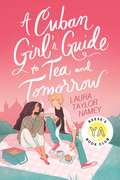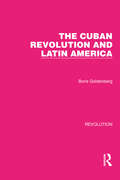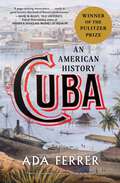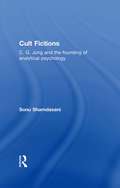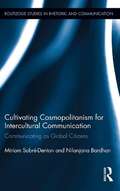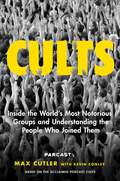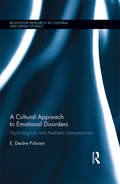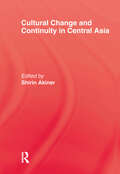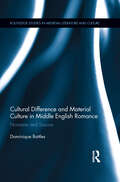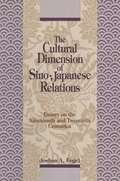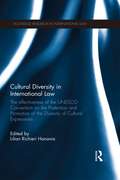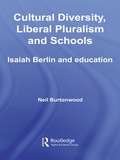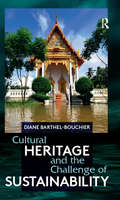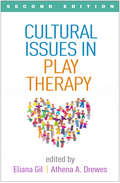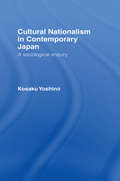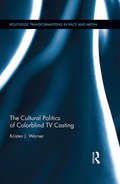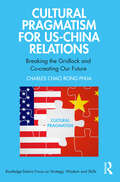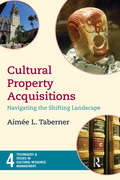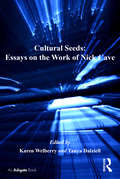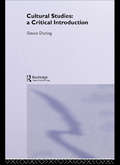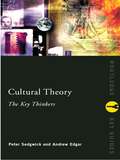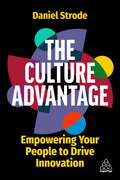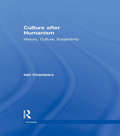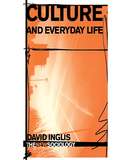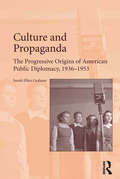Special Collections
Benetech’s Global Certified Accessible Titles
Description: Benetech’s GCA program is the first independent third-party EPUB certification to verify ebook accessibility. By creating content that is born accessible, publishers can meet the needs of all readers. Learn more: https://bornaccessible.benetech.org/
- Table View
- List View
A Cuban Girl's Guide to Tea and Tomorrow
by Laura Taylor NameyA New York Times bestseller A Reese Witherspoon x Hello Sunshine Book Club YA Pick Love & Gelato meets Don&’t Date Rosa Santos in this charming, heartfelt story following a Miami girl who unexpectedly finds love—and herself—in a small English town.For Lila Reyes, a summer in England was never part of the plan. The plan was 1) take over her abuela&’s role as head baker at their panadería, 2) move in with her best friend after graduation, and 3) live happily ever after with her boyfriend. But then the Trifecta happened, and everything—including Lila herself—fell apart. Worried about Lila&’s mental health, her parents make a new plan for her: spend three months with family friends in Winchester, England, to relax and reset. But with the lack of sun, a grumpy inn cook, and a small town lacking Miami flavor (both in food and otherwise), what would be a dream trip for some feels more like a nightmare to Lila…until she meets Orion Maxwell. A teashop clerk with troubles of his own, Orion is determined to help Lila out of her funk, and appoints himself as her personal tour guide. From Winchester&’s drama-filled music scene to the sweeping English countryside, it isn&’t long before Lila is not only charmed by Orion, but England itself. Soon a new future is beginning to form in Lila&’s mind—one that would mean leaving everything she ever planned behind.
The Cuban Revolution and Latin America
by Boris GoldenbergThis book, first published in 1965, is a scrupulously fair study of the origins and evolution of Castroism and an assessment of the impact of the Cuban revolution and of Castro’s subsequent domestic and foreign policies on the rest of Latin America. In this analysis it takes into account the great differences – social, economic and cultural – between the countries of the area and looks at the foreign policies of Latin American countries as well as the United States and the role of international Communism.
Cuba (Winner of the Pulitzer Prize)
by Dr. Ada FerrerWINNER OF THE PULITZER PRIZE IN HISTORY WINNER OF THE LOS ANGELES TIMES BOOK PRIZE IN HISTORY &“Full of…lively insights and lucid prose&” (The Wall Street Journal) an epic, sweeping history of Cuba and its complex ties to the United States—from before the arrival of Columbus to the present day—written by one of the world&’s leading historians of Cuba.In 1961, at the height of the Cold War, the United States severed diplomatic relations with Cuba, where a momentous revolution had taken power three years earlier. For more than half a century, the stand-off continued—through the tenure of ten American presidents and the fifty-year rule of Fidel Castro. His death in 2016, and the retirement of his brother and successor Raúl Castro in 2021, have spurred questions about the country&’s future. Meanwhile, politics in Washington—Barack Obama&’s opening to the island, Donald Trump&’s reversal of that policy, and the election of Joe Biden—have made the relationship between the two nations a subject of debate once more. Now, award-winning historian Ada Ferrer delivers an &“important&” (The Guardian) and moving chronicle that demands a new reckoning with both the island&’s past and its relationship with the United States. Spanning more than five centuries, Cuba: An American History provides us with a front-row seat as we witness the evolution of the modern nation, with its dramatic record of conquest and colonization, of slavery and freedom, of independence and revolutions made and unmade. Along the way, Ferrer explores the sometimes surprising, often troubled intimacy between the two countries, documenting not only the influence of the United States on Cuba but also the many ways the island has been a recurring presence in US affairs. This is a story that will give Americans unexpected insights into the history of their own nation and, in so doing, help them imagine a new relationship with Cuba; &“readers will close [this] fascinating book with a sense of hope&” (The Economist). Filled with rousing stories and characters, and drawing on more than thirty years of research in Cuba, Spain, and the United States—as well as the author&’s own extensive travel to the island over the same period—this is a stunning and monumental account like no other.
Cult Fictions
by Sonu ShamdasaniControversial claims that C.G. Jung, founder of analytical psychology, was a charlatan and a self-appointed demi-god have recently brought his legacy under renewed scrutiny. The basis of the attack on Jung is a previously unknown text, said to be Jung's inaugural address at the founding of his 'cult', otherwise known as the Psychological Club, in Zurich in 1916. It is claimed that this cult is alive and well in Jungian psychology as it is practised today, in a movement which continues to masquerade as a genuine professional discipline, whilst selling false dreams of spiritual redemption. In Cult Fictions, leading Jung scholar Sonu Shamdasani looks into the evidence for such claims and draws on previously unpublished documents to show that they are fallacious. This accurate and revealing account of the history of the Jungian movement, from the founding of the Psychological Club to the reformulation of Jung's approach by his followers, establishes a fresh agenda for the historical evaluation of analytical psychology today.
Cultivating Cosmopolitanism for Intercultural Communication
by Miriam Sobre-Denton and Nilanjana BardhanWinner of the National Communication Association's International and Intercultural Communication Division's 2014 Outstanding Authored Book of the Year award This book engages the notion of cosmopolitanism as it applies to intercultural communication, which itself is undergoing a turn in its focus from post-positivistic research towards critical/interpretive and postcolonial perspectives, particularly as globalization informs more of the current and future research in the area. It emphasizes the postcolonial perspective in order to raise critical consciousness about the complexities of intercultural communication in a globalizing world, situating cosmopolitanism—the notion of global citizenship—as a multilayered lens for research. Cosmopolitanism as a theoretical repertoire provides nuanced descriptions of what it means to be and communicate as a global citizen, how to critically study interconnectedness within and across cultures, and how to embrace differences without glossing over them. Moving intercultural communication studies towards the global in complex and nuanced ways, this book highlights crucial links between globalization, transnationalism, postcolonialism, cosmopolitanism, social injustice and intercultural communication, and will help in the creation of classroom spaces devoted to exploring these links. It also engages the links between theory and praxis in order to move towards intercultural communication pedagogy and research that simultaneously celebrates and interrogates issues of cultural difference with the aim of creating continuity rather than chasms. In sum, this book orients intercultural communication scholarship firmly towards the critical and postcolonial, while still allowing the incorporation of traditional intercultural communication concepts, thereby preparing students, scholars, educators and interculturalists to communicate ethically in a world that is simultaneously global and local.
Cults
by Max CutlerMystery. Manipulation. Murder. Cults are associated with all of these. But what really goes on inside them? More specifically, what goes on inside the minds of cult leaders and the people who join them? Based on the hit podcast Cults, this is essential reading for any true crime fan. Cults prey on the very attributes that make us human: our desire to belong; to find a deeper meaning in life; to live everyday with divine purpose. Their existence creates a sense that any one of us, at any time, could step off the cliff&’s edge and fall into that daunting abyss of manipulation and unhinged dedication to a misplaced cause. Perhaps it&’s this mindset that keeps us so utterly obsessed and desperate to learn more, or it&’s that the stories are so bizarre and unsettling that we are simply in awe of the mechanics that make these infamous groups tick. The premier storytelling podcast studio Parcast has been focusing on unearthing these mechanics—the cult leaders and followers, and the world and culture that gave birth to both. Parcast&’s work in analyzing dozens of case studies has revealed patterns: distinct ways that cult leaders from different generations resemble one another. What links the ten notorious figures profiled in Cults are as disturbing as they are stunning—from Manson to Applewhite, Koresh to Raël, the stories woven here are both spellbinding and disturbing. Cults is more than just a compilation of grisly biographies, however. In these pages, Parcast&’s founder Max Cutler and national bestselling author Kevin Conley look closely at the lives of some of the most disreputable cult figures and tell the stories of their rise to power and fall from grace, sanity, and decency. Beyond that, it is a study of humanity, an unflinching look at what happens when the most vulnerable recesses of the mind are manipulated and how the things we hold most sacred can be twisted into the lowest form of malevolence.
A Cultural Approach to Emotional Disorders
by E. Deidre PribramIn her latest contribution to the growing field of emotion studies, Deidre Pribram makes a compelling argument for why culturalist approaches to the study of emotional "disorders" continue to be eschewed, even as the sociocultural and historical study of mental illness flourishes. The author ties this phenomenon to a tension between two fundamentally different approaches to emotion: an individualist approach, which regards emotions as the property of the individual, whether biologically or psychologically, and a culturalist approach, which regards emotions as collective, social processes with distinctive histories and meanings that work to produce particularized subjects. While she links a strong preference for the individualist construct in Western culture to the rise of the psychological and psychiatric disciplines at the turn of the twentieth century, Pribram also engages with a diverse set of case studies tied to psychological and aesthetic discourses on emotions. These range from Van Gogh’s status as emotionally disordered to the public, emotional aesthetics of 19th century melodrama to the diagnostic categories of the DSMs and the fear of "globalizing" emotional disorders in the 21st century. This genuinely interdisciplinary approach makes for a text with potential application in a wide range of disciplines within cultural studies, including sociocultural and historical analysis of psychiatry and psychology, gender theory, subject and identity theory, popular culture studies, and history and theory of the arts.
Cultural Change & Continuity In
by AkinerFirst published in 1991. Routledge is an imprint of Taylor & Francis, an informa company.
Cultural Difference and Material Culture in Middle English Romance
by Dominique BattlesThis book explores how the cultural distinctions and conflicts between Anglo-Saxons and Normans originating with the Norman Conquest of 1066 prevailed well into the fourteenth century and are manifest in a significant number of Middle English romances including King Horn, Havelok the Dane, Sir Orfeo, Sir Gawain and the Green Knight, and others. Specifically, the study looks at how the material culture of these poems (architecture, battle tactic, landscapes) systematically and persistently distinguishes between Norman and Anglo-Saxon cultural identity. Additionally, it examines the influence of the English Outlaw Tradition, itself grounded in Anglo-Saxon resistance to the Norman Conquest, as expressed in specific recurring scenes (disguise and infiltration, forest exile) found in many Middle English romances. In the broadest sense, a significant number of Middle English romances, including some of the most well-read and often-taught, set up a dichotomy of two ruling houses headed by a powerful lord, who compete for power and influence. This book examines the cultural heritage behind each of these pairings to show how poets repeatedly contrast essentially Norman and Anglo-Saxon values and ruling styles.
The Cultural Dimensions of Sino-Japanese Relations
by Joshua A. FogelPresents the perceptions that the Chinese and the Japanese have of each other, and the information that helped to fuel those perceptions. There are two sections: China in Japan, debating the Asiatic Mode of Production and kyodotai; and Japan in China, covering the Manchurian Railway.
Cultural Diversity in International Law
by Lilian Richieri HananiaThe UNESCO Convention on the Protection and Promotion of the Diversity of Cultural Expressions (CDCE) was adopted in 2005 and designed to allow States to protect and promote cultural policies. This book examines the effectiveness of the CDCE and offers ways by which its implementation may be improved to better attain its objectives. The book provides insight in how the normative character of the CDCE may be strengthened through implementation and increasingly recurrent practice based on its provisions. Hailing from various fields of international law, political and social sciences, the book’s contributors work to promote discussions on the practical and legal influence of the CDCE, and to identify opportunities and recommendations for a more effective application. Part One of the book assesses the effectiveness of the CDCE in influencing other areas of international law and the work conducted by other intergovernmental organizations through the recognition of the double nature (cultural and economic) of cultural goods and services. Part Two focuses on the practice of the CDCE beyond the recognition of the specificity of cultural goods and services in international law by addressing the CDCE’s call for greater international cooperation and stronger integration of cultural concerns in development strategies at the national and regional levels. The book will be of great use and interest to academics and practitioners in law, social and political sciences, agents of governmental and international organizations, and cultural sector stakeholders.
Cultural Diversity, Liberal Pluralism and Schools
by Neil BurtonwoodWith debates on the relationship between cultural diversity and the role of schools raging on both sides of the Atlantic, the time is apt for a philosophical work that shines new light on the issues involved and that brings a fresh perspective to a political and emotive discussion. Here Burtonwood brings the writing of British philosopher Isaiah Berlin to bear on the subject of multiculturalism in schools, the first time that his work has been applied to matters of education. Tackling the often-contradictory issues surrounding liberal pluralism, this book poses serious questions for the education system in the US and in the UK.
Cultural Heritage and the Challenge of Sustainability
by Diane Barthel-BouchierFor cultural and heritage institutions around the world, sustainability is the major challenge of the twenty-first century. In the first major work to analyze this critical issue, Barthel-Bouchier argues that programmatic commitments to sustainability arose both from direct environmental threats to tangible and intangible heritage, and from social and economic contradictions as heritage developed into a truly global organizational field. Drawing on extensive fieldwork and interviews over many years, as well as detailed coverage of primary documents and secondary literature, she examines key international organizations including UNESCO, ICOMOS, and the World Monuments Fund, and national trust organizations of Great Britain, the United States, and Australia, and many others. This wide-ranging study establishes a foundation for critical analysis and programmatic advances as heritage professionals encounter the growing challenge of sustainability.
Cultural Issues in Play Therapy, Second Edition
by Eliana Gil and Athena A. DrewesThis unique resource is now in an extensively revised second edition with more than 90% new material and an expanded conceptual framework. Filled with rich case illustrations, the book explores how children's cultural identities--as well as experiences of marginalization--shape the challenges they bring to therapy and the ways they express themselves. Expert practitioners guide therapists to build competence for working across different dimensions of diversity, including race and ethnicity, gender identity, sexual orientation, and disability. Purchasers get access to a companion website featuring chapters from the first edition on play therapy with major cultural groups: African Americans, Hispanics, Native Americans, and Asian Americans. New to This Edition *Virtually a new book; incorporates a broader definition of culture and an increased social justice focus. *Chapters on working with children of color, LGBT children and adolescents, undocumented families, and Deaf children. *Chapter on dismantling white privilege in the play therapy office. *Chapters on school bullying and on how technology is transforming play, including tips for conducting tele-play therapy.
Cultural Nationalism in Contemporary Japan
by Kosaku YoshinoThe debate about Japan's 'uniqueness' is central to Japanese studies. This book aims to illuminate that debate from a comparative and theoretical perspective. It also tests theories of ethnicity and cultural nationalism through the use of Japan as a case study.Yoshino examines how ideas of national distinctiveness are `produced' and `consumed' in Japanese society through a study of intellectuals, teachers and businessmen. He finds that ideas of Japanese uniqueness, the nihonjinron, have been embraced more by those in business than in education. He looks at the Japanese perception of their own 'uniqueness' and at the ways in which ideas of cultural distinctiveness are formulated in different national and historical contexts.This extremely readable book combines anthropology and sociology to present both a historical analysis of the roots of the Japanese sense of national identity and a discussion of the ways in which that sense is changing.
The Cultural Politics of Colorblind TV Casting
by Kristen J. WarnerThis book fills a significant gap in the critical conversation on race in media by extending interrogations of racial colorblindness in American television to the industrial practices that shape what we see on screen. Specifically, it frames the practice of colorblind casting as a potent lens for examining the interdependence of 21st century post-racial politics and popular culture. Applying a ‘production as culture’ approach to a series of casting case studies from American primetime dramatic television, including ABC’s Grey’s Anatomy and The CW’s The Vampire Diaries, Kristen Warner complicates our understanding of the cultural processes that inform casting and expounds the aesthetic and pragmatic industrial viewpoints that perpetuate limiting or downright exclusionary hiring norms. She also examines the material effects of actors of color who knowingly participate in this system and justify their limited roles as a consequence of employment, and finally speculates on what alternatives, if any, are available to correct these practices. Warner’s insights are a valuable addition to scholarship in media industry studies, critical race theory, ethnic studies, and audience reception, and will also appeal to those with a general interest in race in popular culture.
Cultural Pragmatism for US-China Relations
by Charles Chao Rong PhuaThe Thucydides trap and a US-China face-off are not structurally inevitable; US-China relations are what the US and China make of them. Phua focuses on the ability to see "US as US" and "China as China" to trigger both countries’ cultural tendencies towards pragmatism. Phua examines China’s arduous journey to fit in the Westphalian system, the deep cultural misunderstandings by the West of Sunzi’s The Art of War, and attempts to offer an inside-out cultural synthesis of classical and modern Chinese thought as a proxy of their operational code, beyond the standard clichés about Confucian and Daoist thought. He builds on Jervis’ perception and misperception as well as Alastair Johnston’s cultural realism. Readers will benefit from a culturally-Chinese, western-educated and politically neutral understanding of "China as China". An essential primer for academics, practitioners and students of international relations, diplomacy and Chinese culture.
Cultural Property Acquisitions
by Aimée L TabernerMuseum staff--whether new to the field or working with collections for decades--are often overwhelmed by the complexities of acquiring cultural property, particularly antiquities and archaeological material. Collecting practices now require a greater degree of transparency and cooperation with various stakeholders than in the past, and are under greater scrutiny to be in line with current legal requirements and ethical expectations. This book provides a concise, unbiased, and practical resource for those tasked with navigating the complicated and rapidly changing legal and ethical landscape governing the acquisition of cultural property and archaeological material.
Cultural Seeds
by Karen Welberry and Tanya DalziellNick Cave is now widely recognized as a songwriter, musician, novelist, screenwriter, curator, critic, actor and performer. From the band, The Boys Next Door (1976-1980), to the spoken-word recording, The Secret Life of the Love Song (1998), to the recently acclaimed screenplay of The Proposition (2005) and the Grinderman project (2008), Cave's career spans thirty years and has produced a comprehensive (and sometimes controversial) body of work that has shaped contemporary alternative culture. Despite intense media interest in Cave, there have been remarkably few comprehensive appraisals of his work, its significance and its impact on understandings of popular culture. In addressing this absence, the present volume is both timely and necessary. Cultural Seeds brings together an international range of scholars and practitioners, each of whom is uniquely placed to comment on an aspect of Cave's career. The essays collected here not only generate new ways of seeing and understanding Cave's contributions to contemporary culture, but set up a dialogue between fields all-too-often separated in the academy and in the media. Topics include Cave and the Presley myth; the aberrant masculinity projected by The Birthday Party; the postcolonial Australian-ness of his humour; his interventions in film and his erotics of the sacred. These essays offer compelling insights and provocative arguments about the fluidity of contemporary artistic practice.
Cultural Studies
by Simon DuringCultural Studies: A Critical Introduction is a wide-ranging and stimulating introduction to the history and theory of Cultural Studies from Leavisism, through the era of the Centre for Contemporary Cultural Studies, to the global nature of contemporary Cultural Studies. Cultural Studies: A Critical Introduction begins with an introduction to the field and its theoretical history and then presents a series of short essays on key areas of Cultural Studies, designed to provoke discussion and raise questions. Each thematic section examines and explains a key topic within Cultural Studies.Sections include:* the discipline* time* space* media and the public sphere* identity* sexuality and gender* value
Cultural Theory: The Key Thinkers
by Peter Sedgwick and Andrew EdgarFeaturing over eighty essays, Cultural Theory: The Key Thinkers is a seminal guide to the literary critics, sociologists, historians, artists, philosophers and writers who have shaped culture and society, and the way in which we view them. Ranging from Arnold to Le Corbusier, from Eco to Marx, the entries offer a lucid analysis of the work of influential figures in the study of cultural theory, making this the perfect introduction for the student and general reader alike.
The Culture Advantage
by Daniel StrodeInnovation is the key to making your business go the distance. Innovate or die they say. But where does innovation lie? The answer is in your people.Far from being the privilege of the unicorns of Silicon Valley, innovation isn't dependent on business model, structure or even budget. By harnessing your people's power through a corporate culture of innovation, you unlock business opportunities that your competition won't have access to. The Culture Advantage is a blueprint to designing, implementing and sustaining a culture that will not only celebrate innovation, but will imbue it in everything your company, and its people, do.Culture evangelist, Daniel Strode, with the help of some of the world's historically most inspiring and innovative businesses like The Walt Disney Company and The LEGO Group, as well as newer companies like Art Blocks from the Web 3.0 and blockchain space, breaks down the innovation puzzle. Through evaluating your business model; daring to chip away at it; empowering your people through technologies; psychological safety and leadership; putting constraints onto their creative efforts; and hiring and collaborating with the right types of innovators, you'll discover how to enhance your adaptability and futureproof your business.
Culture after Humanism
by Iain ChambersCulture After Humanism asks what happens to the authority of traditional western modes of thought in the wake of postmodernist theories of language and identity. Drawing on examples from music, architecture, literature, philosophy and art, Iain Chambers investigates moments of tension, interruptions which transform our perception of the world and test the limits of language, art and technology.
Culture and Everyday Life
by David InglisCulture is unquestionably a central topic in the contemporary social sciences. In order to understand how people think, feel, value, act and express themselves, it is necessary to examine the cultures they create, and are in turn created by. Here, David Inglis shows how the study of culture can be transformed by focusing in on how cultural forces shape, influence, structure - and occasionally disrupt - the day-to-day activities of individuals. Reconsidering different views on 'culture' - what it is, how it operates, and how it relates to other aspects of the human (and non-human) world - this new book covers key areas such as: high culture versus popular culture modern and postmodern culture globalization and culture culture and nature. Specific issues covered range from the everyday aspects of sportive play, artistic production and the mass media, to car culture and global cuisine, and students are introduced to some of the major thinkers on culture from Matthew Arnold to Bakhtin and Bourdieu. Written in a concise, student-friendly manner, theoretical arguments are illustrated with examples from film, architecture and daily life, making this an informative and indispensable introduction for those wishing to understand the complexities of culture.
Culture and Propaganda
by Sarah Ellen GrahamThroughout the twentieth century governments came to increasingly appreciate the value of soft power to help them achieve their foreign policy ambitions. Covering the crucial period between 1936 and 1953, this book examines the U.S. government’s adoption of diplomatic programs that were designed to persuade, inform, and attract global public opinion in support of American national interests. Cultural diplomacy and international information were deeply controversial to an American public that been bombarded with propaganda during the First World War. This book explains how new notions of propaganda as reciprocal exchange, cultural engagement, and enlightening information paved the way for innovations in U.S. diplomatic practice. Through a comparative analysis of the State Department’s Division of Cultural Relations, the government radio station Voice of America, and the multilateral cultural, educational and scientific diplomacy of Unesco, and drawing extensively on U.S. foreign policy archives, this book shows how America’s liberal traditions were reconciled with the task of influencing and attracting publics abroad.
